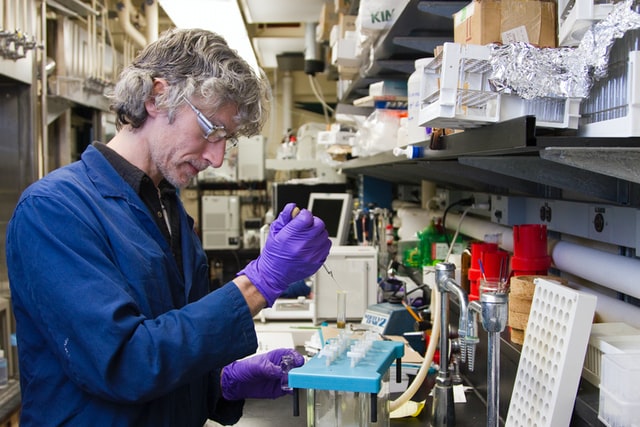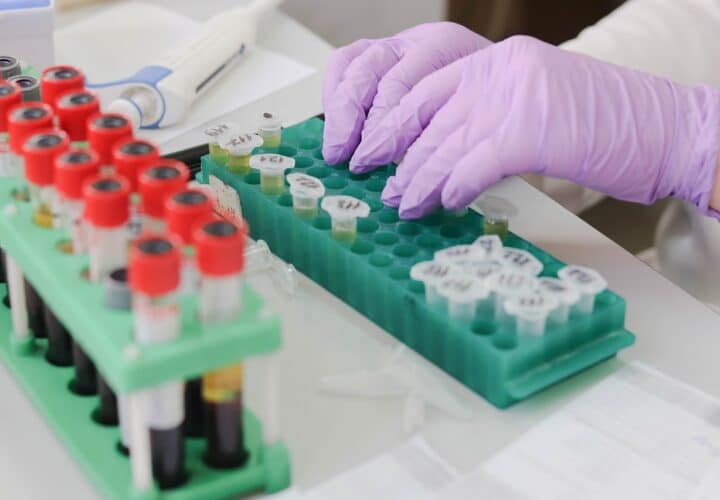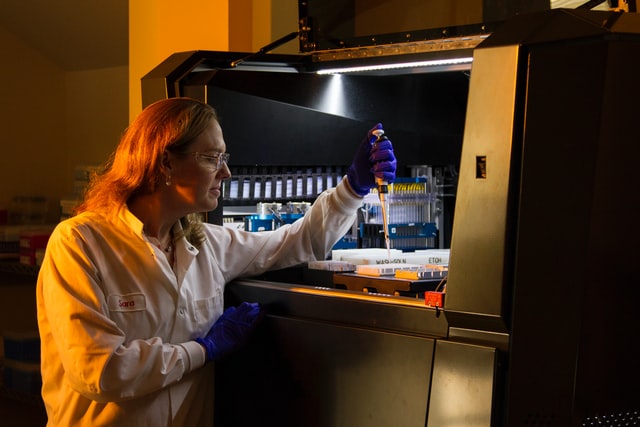The first ever commercial Alzheimer’s blood test is on the market. It’s big progress. Some experts have reservations because it hasn’t yet secured FDA approval, among other limitations.
While Alzheimer’s is among the top six leading causes of death in the United States and its prevalence is only growing, diagnosing it with accuracy has been notoriously difficult, requiring brain scan technology that can be both expensive and inaccessible. One approach to solving for these challenges is the development of a blood test for Alzheimer’s. A number of different tests have been in development over the past several years. Many are designed to detect the disease’s key biomarkers — beta-amyloid and tau proteins in the brain — via blood plasma. But, most Alzheimer’s blood tests underway are still years from completion.
So, it is big news that one of these experimental tests — developed by C2N Diagnostics with researchers from Washington University School of Medicine — is now on the market in most U.S. states and in Europe. (It joins an existing Quest Diagnostics blood test designed to identify Alzheimer’s biomarkers that is not widely used in part due to questions of accuracy.)
The C2N test is specifically designed for people 60 and older who are experiencing cognitive impairment, and who are accordingly seeking testing for Alzheimer’s.
The test costs $1,250 — an advantage over more expensive amyloid PET scans that typically do not have insurance coverage. While the blood test is cheaper, it is not at this time covered by insurance. Per reporting by CBS, the company is offering income-based discounts.
Limitations of the C2N Alzheimer’s Blood Test
The company has not published any data on the test’s accuracy, though their promotional materials compare accuracy rates to the accuracy seen with PET scans.
The facts that 1) key test results have yet to be published, and 2) the test isn’t FDA approved, raised red flags for some experts. According to CBS:
Independent experts are leery because key test results have not been published and the test has not been approved by the U.S. Food and Drug Administration — it’s being sold under more general rules for commercial labs. But they agree that a simple test that can be done in a doctor’s office has long been needed.
“I think there are two key steps that need to happen before this test really becomes more widespread,” internal medicine specialist Dr. Karen Abrashkin said on CBSN Tuesday. “One is that we need to see the data that’s being used to develop the test. We haven’t seen that data yet. It hasn’t been published and so we don’t know how sensitive or specific this test is for Alzheimer’s.”
The other, according to Abrashkin, is FDA clearance.
“That’s really a stamp of approval that needs to happen before the test becomes more widespread,” she said.





Sure make a test that can help find out if your going to have this horrible brain illness and make out of poor people reach thanks alot,it runs in my family and I would like to know now not later